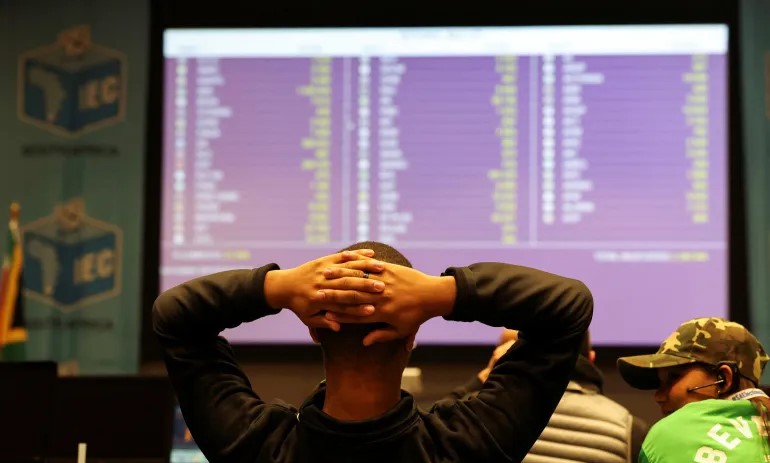(4 Minutes Read)
As predicted by www.trendsnafrica.com, from time to time, South Africa is moving towards a coalition government as 99% of the votes are counted. The narrative and discourse are now veering around who will be the partners of the coalition led by the largest African National Congress (ANC). Till yesterday or sometime in the morning, many were speculating what could be the difference between 50% of the vote share and the real vote share of the ANC. If the vote share falls short of a few percent, it could still form the government with the support of some of the small players. That is now out of the question. Though the exact percentage that the ANC can command will be known only tomorrow, it can be rightly guessed as little over 40%.
Nearly 99% of votes have been counted and verified nationally. It has 40% of votes nationally and cannot reach the 50% needed to be able to govern the country alone. This means the ANC will have to form a coalition government with one or more smaller parties. Trailing behind are the DA at 22%, MK at 15%, the EFF at 10%, and the IFP at 4%.
Barring the newly formed MK Party of Jacob Zuma, the rest are losers in a way. Democratic Alliance has improved its vote share only marginally. It moved from 21% in 2019 to 22% belying the expectation that a sizable chunk of the black population might vote for it to give the white-dominated party a chance to rule the roost as a powerful coalition partner. That is not happening now. Although the newly formed MK could cut the vote of all other players by capturing over 15% of the vote share, it is falling short of winning an outright majority in KwaZulu-Natal – its political stronghold. It was expected to do better there. That could be the reason that it is demanding a recount.
What could be the broad counters of the coalition? Political analysts bet on the ANC and DA coming together. That seems to be the most likely possibility, according to seasoned political analysts. There is convergence in their economic thinking. Of late, ANC has focused on the private sector as a way out to take the country from the morass of sluggish growth. DA is a notch above the ANC in orchestrating the market economy, distancing from the commanding heights of the public sector undertakings. The synergy for them to come together lies there. DA with its colonial hangover and meaty 22% vote share can give a stable government to the country even while pushing forward for a market-driven economy. That will also force South Africa to play a more pro-west game plan due to the closeness of DA with that region.
The other possibility of all opposition parties coming together representing a vote share of close to 60%. That will be the most disastrous political equation since their economic foci are diametrically opposite and most incompatible, to say the least. Also, DA and EEF consider Zuma’s MK Party a political pariah due to his involvement in rampant corruption cases during his rule.
Read Also:
https://trendsnafrica.com/anc-to-lose-majority-in-south-africa/#google_vignette
The third possibility is ANC and MK coming together. There is synergy since Zuma before Ramaphosa was the chairman of the ANC and the president. Together they can command over 55% of the vote share, enough to give a strong coalition government. The moot point is: can the two Titans, who are sworn enemies of each other, forget and forgive? Quite unlikely! Whatever Plan B prepared by the ANC to hold hands with EEF may not work out since there is a massive erosion in its vote share, mainly due to the presence of the MK Party, which has seemingly swept its votes, pushing it to become the third largest opposition party. With a vote share of less than 10%, it cannot supplement the vote deficit of the ANC.
Now, the game is wide open. The only certainty is that it is going to be a coalition government, no matter who is going to be its partners.





